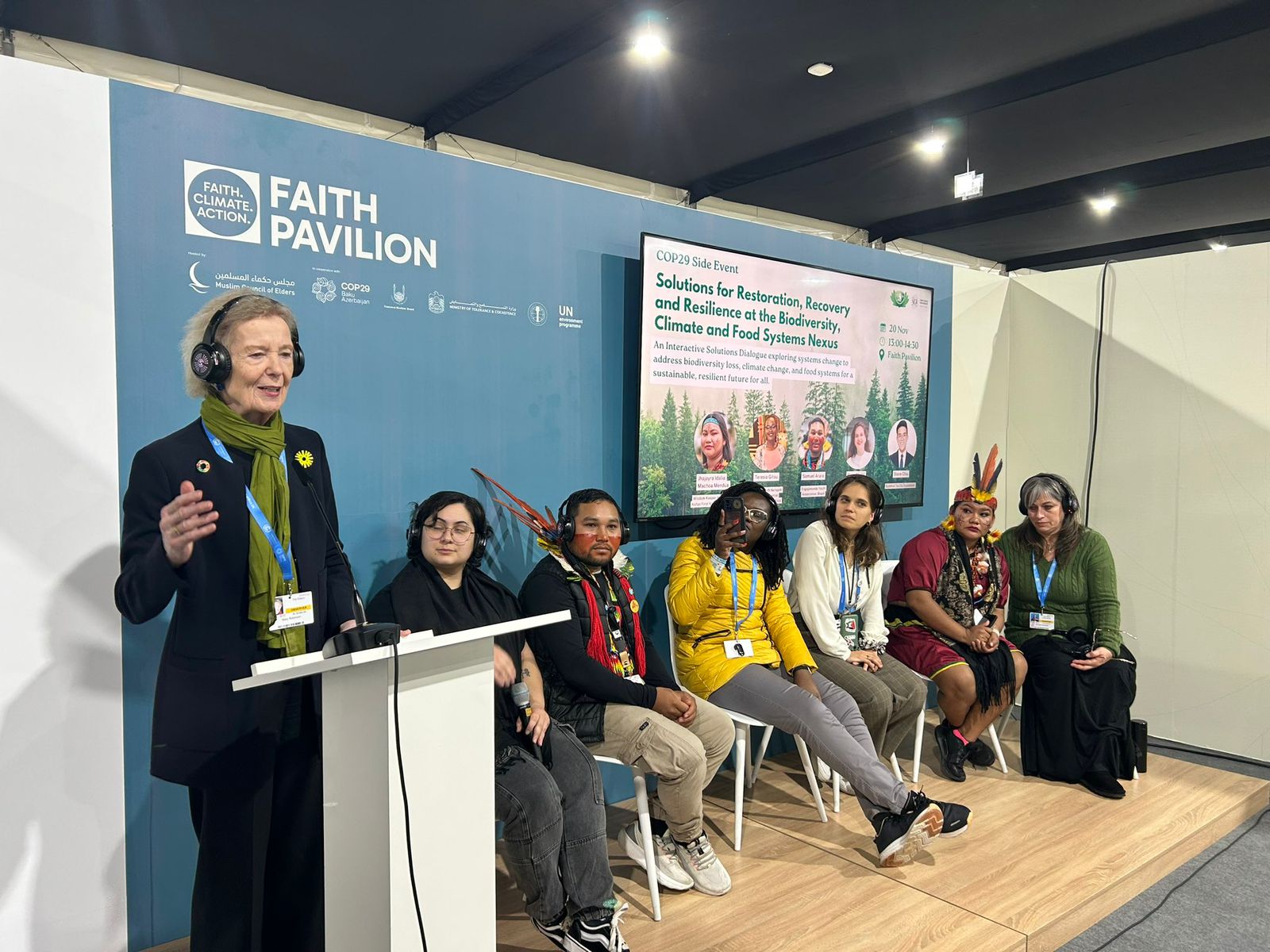The Faith Pavilion at COP29 Hosts the Launch of a Global Alliance for Women Religious Leaders to Address Climate Change
A New Alliance Launched to Strengthen Women-Led Climate Action, Benefiting Over 73 Million People Globally
Former President of Ireland During the Launch of a Global Alliance for Women Religious Leaders at the Faith Pavilion at COP29: Religious Leaders Represent a Tremendous Force Capable of Mobilizing Over 5.8 Billion People Worldwide to Support Climate Action Efforts
The eighth day of the Faith Pavilion at the 29th session of the United Nations Framework Convention on Climate Change (COP29), organized by the Muslim Council of Elders in Baku, Azerbaijan, marked the launch of the Global Alliance of Religious Women Leaders to Combat Climate Change. The event brought together 50 religious women leaders from eight major religions across 15 countries, including Mary Robinson, former President of Ireland, a founding member of The Elders, and co-founder of The Project Dandelion —a global women-led campaign for climate justice—alongside young climate activist Ridhima Pandey.
In her speech at the launch of the Global Alliance of Religious Women Leaders for Climate Action, Mary Robinson highlighted that religious leaders hold immense power, capable of mobilizing over 5.8 billion people—80% of the global population—to turn moral and religious values into concrete actions against the climate crisis. She emphasized that this women-led alliance demonstrates that religions are not only a source of inspiration but also a driving force for practical solutions to environmental challenges, paving the way for a more sustainable and equitable future for all.
Participants in the launch of the alliance included Lorna Gold from the ‘Laudato Si' Movement;’ Alissa Wahid, founder of the Gusdurian Network Indonesia (GNI); Azza Karam, leader of the ‘Integrity’ initiative; Daniel Schwartz from the Coalition on Environment and Life; Debra Boudreaux from the Tzu Chi Foundation; Husna Ahmad from the World Islamic Leadership Forum; Dr. Iyad Abu Moghli, Head of the ‘Faith for Earth’ initiative and representative of the United Nations Environment Programme (UNEP); Sr Maamalifar Poreku from the International Union of Superiors General; Martha Jarvis from the Anglican Church; Meryne Warah from GreenFaith; and Amani Al Khatahtbeh, the founder of MuslimGirl.com blog.
The global alliance, named “Women, Faith, and Climate,” aims to engage climate action alliances led by women from diverse religions and geographies, leveraging the powerful influence of religious women leaders to accelerate progress toward achieving global climate goals. The alliance also seeks to highlight women's roles in addressing the climate crisis at both national and international levels, promote best practices in environmental sustainability, strengthen collaboration among women's alliances from different faiths, and inspire more women to participate in global climate action efforts.
This alliance benefits more than 73 million people worldwide through major organizations such as the "Mothers’ Union," which comprises four million members across 83 countries; the Buddhist "Tzu Chi Foundation," with six million members; the "Brahma Kumaris" movement, with 600,000 women; and the "International Union of Superiors General," which includes 600,000 Catholic nuns. Its future plans aim to raise global awareness of women-led climate efforts through media campaigns and inspiring stories that highlight their successes. The alliance also seeks to expand collaboration on projects such as greening places of worship, tree planting, and promoting renewable energy use. Furthermore, it plans to intensify advocacy for effective climate policies during upcoming global events, including COP30, while establishing a coordination mechanism to support communication and knowledge exchange among members, uniting efforts to tackle climate challenges effectively.
The Faith Pavilion, organized by the Muslim Council of Elders at COP29, aims to build on the success achieved in its first edition during COP28. It continues to frame climate change as a deeply religious and moral issue, exploring best practices to promote sustainable lifestyles and examining the non-economic impacts of climate change through faith-based perspectives. The pavilion also seeks to call upon global policymakers and decision-makers to consider the spiritual and ethical consequences of environmental neglect and to take immediate and decisive actions to protect the planet.

